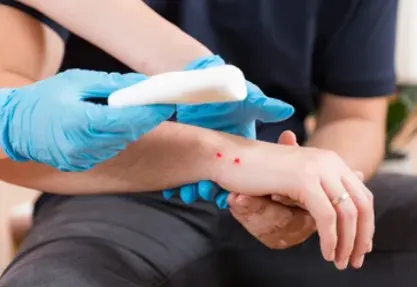 Welcome
Welcome
“May all be happy, may all be healed, may all be at peace and may no one ever suffer."
Herpes simplex - Generics
Herpes simplex is a common viral infection caused by the herpes simplex virus (HSV). There are two types of HSV: type 1, which primarily causes oral herpes (cold sores) and type 2, which primarily causes genital herpes.
Symptoms of herpes simplex may include painful blisters or sores on or around the mouth or genitals, itching, and flu-like symptoms such as fever and swollen lymph nodes. Once a person is infected, the virus can remain dormant in the body and can reactivate at any time, causing recurrent outbreaks of symptoms.
Herpes simplex is highly contagious and can be spread through skin-to-skin contact, including sexual contact. The virus can also be transmitted through contact with infected bodily fluids, such as saliva or genital secretions.
While there is no cure for herpes simplex, antiviral medications can help to reduce the frequency and severity of outbreaks, as well as the duration of symptoms during outbreaks. People with herpes simplex can also take steps to prevent the spread of the virus, such as using condoms during sexual activity and avoiding contact with infected areas during outbreaks.
It is important to seek medical attention if you suspect that you may have herpes simplex, as early diagnosis and treatment can help to manage symptoms and prevent the spread of the virus to others.

Abdominal pain

Vitamin B6 deficiency

Metastatic Ovarian Tumors

Serious staphylococcal or...

Rabies

Lens opacification

Staphylococcus Aureus

Cortical myoclonus
Herpes simplex, হারপিস সিমপ্লেক্স
To be happy, beautiful, healthy, wealthy, hale and long-lived stay with DM3S.